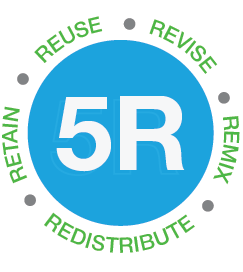An Educational Resources Movement that Can Change Academia (original) (raw)
Caitlin Carter, Librarian | Mar 14 2019 • 6 min read
As a scholarly communications librarian, I frequently present on the benefits of Open Access, Open Science, and Open Education. Unfortunately, depending on the group, I sometimes bury the lead. I do that by beginning my talks dispelling myths about each movement, or by reciting a litany of definitions before I'm content the room understands what I do, and why I’m there talking to them.
In “How Librarians Can Really Explain What Their Jobs Are Like,” Brandy King eloquently writes about her experience explaining her job to others. Her initial frustration resonated with me: I see even my closest friends’ eyes glaze over when I try to explain that, although I am a librarian, I never learned the Dewey Decimal System in graduate school.
In fact, I once had to ask the circulation staff to help me find a book in the stacks — and I have never shushed a single library patron. One time in graduate school, I ran into an old friend who actually laughed when I said I was studying library science. Stereotypes and misunderstandings aside, Ms. King raises important points about how we librarians should focus on our work’s impact, rather than on correcting assumptions.
Where Librarian Impact Can Be Great
The impact I long for is one that will transform the scholarly communication landscape. I want the various aspects of the ecosystem to become more open, transparent, and accessible. That includes: research and publishing, copyright, author rights, peer review, tenure and promotion, textbook, and other learning material creation, pedagogy, data sharing, and more. Sounds simple, right?
While fostering openness in academia is not an easy task, Ms. King helped me understand how I can start presentations, written communications, and conversations by describing the impact each open movement will make. I also realized I need to break down my lofty overarching vision of scholarly communication into several impact goals, and while doing this, I discovered how and why I am writing this post. …
What Can Open Ed Do for You?
Open Education, particularly open educational resources (OER), can transform learning by empowering students to learn by creating and sharing their work back into the commons. Video OER, in particular, can provide exciting learning opportunities and advance the scholarly communication landscape.
OER Means:

- Teaching and learning materials that are openly licensed. Open textbooks from a group like the Open Textbook Library or OpenStax are prime examples of OER, but OER can be entire courses or lecture notes, syllabi, videos, and more.
- Available digitally, but often can be purchased in print at low cost.
- Openly licensed (via a Creative Commons license or other open license), so that others can revise the content, share copies, mix and match chapters between books, and allow others to build upon the work.
- Flexible, so faculty can craft their courses using the best content for the class’ needs at any particular moment in the course.
- Resources that may help lessen the burden for students who are unable to afford high-cost textbooks.
OER in the Field
One exciting OER is from NOBA, which is a collection of Psychology OER modules written by experts in the field. This collection can be flexibly curated into a course management system or provided as free supplemental reading in addition to (or instead of) another textbook that may cost a student several hundred dollars.
An even more exciting project from NOBA is its Noba + Psi Chi Student Video Awards challenge. NOBA asked students to produce and share videos demonstrating their understanding of the five-factor model of an individual’s personality. Awards ranged from 2,500to2,500 to 2,500to1,000, and the process of creating these videos allowed students to engage in a deeper and more creative understanding of the personality trait taxonomy.
JoVE demonstrates what we can learn from watching peer-reviewed videos. OER expands the possibilities of student-centered learning by giving students creative agency in their education through the act of creating and sharing learning materials.